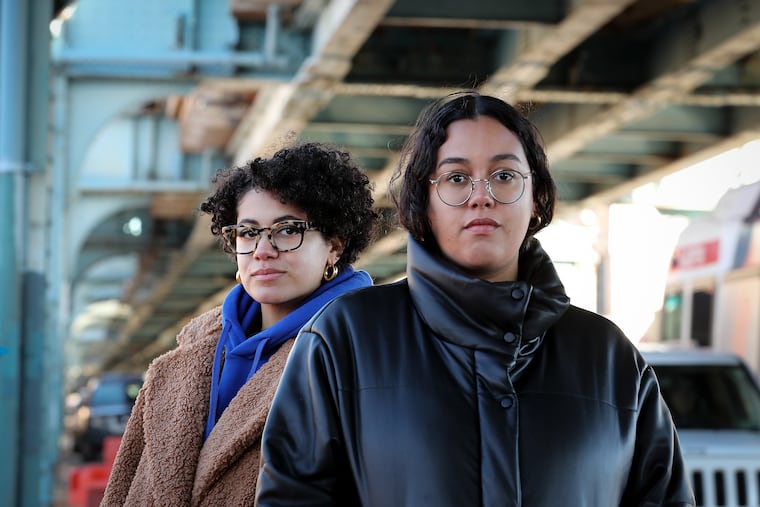A Philly nonprofit that disciplined staffers asking for a raise has settled with the Labor Board
Youth United for Change, a nonprofit that organizes Philadelphia students, settled with the National Labor Relations Board last month.

Last summer, the three full-time staffers at Youth United for Change (YUC) asked their boss in a meeting for a raise.
The two lowest paid, Xiomara Torres and Joia McManus, were making $43,000 and $45,000 a year, respectively. They hadn’t gotten a pay raise in more than a year, and were working beyond their job description because the Northern Liberties-based nonprofit was short-staffed. Not to mention, inflation had made everything so much more expensive.
Torres, 29, and McManus, 27, made it clear: We can’t stay if we don’t get a raise.
Their executive director, Toni Mack, 41, said she had to check with the board but if it was up to her, she’d give it to them, McManus and Torres recalled.
The next day in the office, all three staffers were disciplined.
YUC settled last month with the National Labor Relations Board after workers filed an unfair labor practice charge, accusing Mack of violating their rights.
Under federal law, it’s illegal for employers to retaliate against employees collectively trying to improve their working conditions. When the NLRB believes an employer broke the law, it encourages parties to settle, rather than going to trial.
Mack declined to comment, as did YUC board president Josh Warner.
YUC organizes students, with a focus on youth of color in Kensington, developing them as leaders to make change in their schools and neighborhoods, and in recent years had begun organizing adults in Kensington. Its most recent campaign focused on addressing trash in Kensington. It had $1 million in revenue in 2020, according to its latest available federal tax filing.
As part of the settlement, YUC agreed to post a notice in its office stating it would not discipline workers if they asked for a raise. The sign went up last weekend, former workers said.
The posting reads: “You have the right to collectively request salary increases and engage in other protected concerted activities.”
» READ MORE: Can I get fired for sharing my salary publicly?
Last August, after workers asked for more money, Mack issued a verbal warning to staff, saying that not only would they not get raises but that the way they’d asked was unprofessional. In a memo to staff and board members, titled “Re: DISCIPLINARY ACTION-Verbal Warning: Workplace professionalism,” Mack wrote:
“I explained that the repeated behaviors of collectively planning to disregard YUC policies and undermine the authority of the Executive Director are detrimental to a positive and productive work atmosphere and negatively impact morale and performance.”
She added: “Continued unprofessional conduct will be viewed as unwillingness, rather than inability, to comply with reasonable expectations” and could result in firing.
The discipline came after nearly a year of strife between Mack and her staff, McManus and Torres said. (The third staffer who had asked for a raise declined to be interviewed for this article.)
Mack was hired in November 2021 over an internal candidate supported by many staffers. Last February, staffers filed an internal grievance against Mack, alleging she had been failing to do her job. The grievance resulted in a third-party mediation between Mack and staff that McManus and Torres felt was not productive.
In the months after the August disciplinary action, all three full-time staffers quit.
Because they asked for a raise collectively, workers were protected by the National Labor Relations Act. The NLRA protects private-sector employees organizing to improve their working conditions, so if an individual asked for an individual raise, the person wouldn’t be protected, said employment lawyer Greg Greubel, who is not involved in the matter. But if an individual asked for a raise for a group of workers (for example, all night-shift workers), the worker would be protected.
Torres, YUC’s former office manager who recently accepted a role as a community microlender at a local community development financial institution, said this behavior was outrageous coming from a place like YUC.
“I would expect it in a corporate environment,” she said. “But we’re working for a very small nonprofit whose entire mission is around creating better communities for Black and brown people and it’s just very contradictory.”